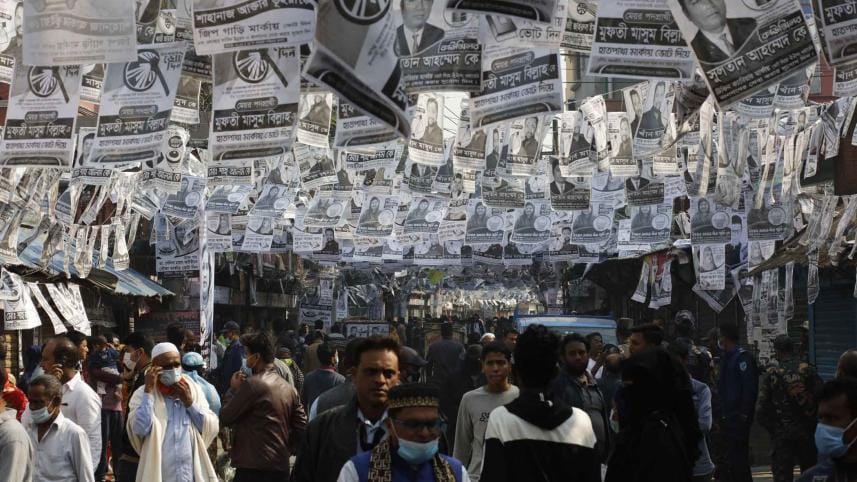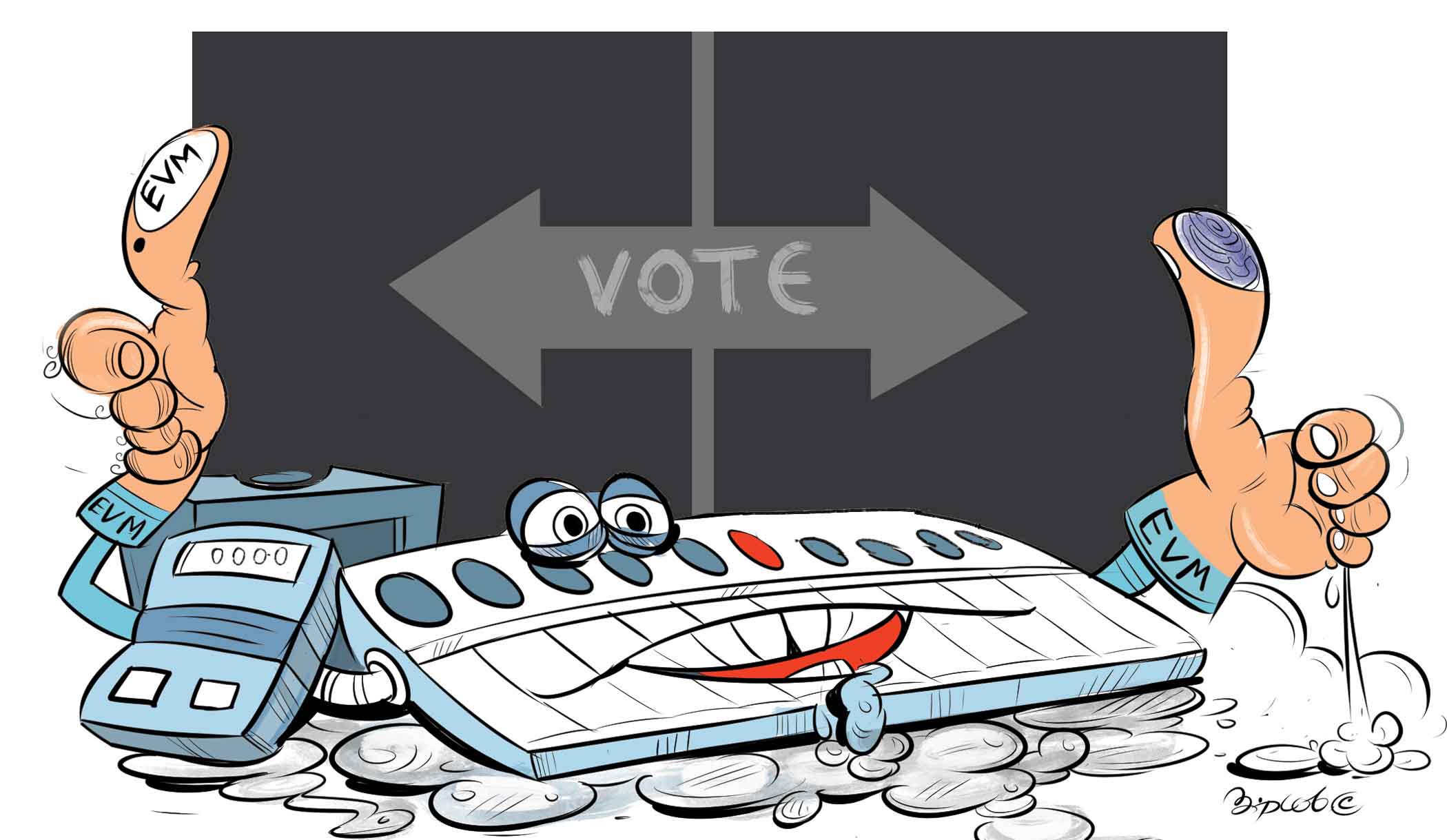Why election 2023 needs to be different from the last two

Analyses of Bangladesh's last three elections would reveal the dark side of our politics, which to a large extent replicates practices marked by a policy of exclusiveness, keeping the major opposition party out of the fray, and creating a loyal opposition obligated to the ruling party. It is disheartening to see the ruling party, a political party with established credentials, replicate a highly undemocratic innovation of a military ruler of keeping a tamed opposition in parliament. In fact, in its turn, the Awami League has gone a step further and appointed a few of them as cabinet ministers.
The 12th parliamentary election is just round the corner, and Bangladesh has come under international radar in this regard. Our development partners, the UK and US in particular, have expressed their views on the type of elections they would like to see in 2023. The US ambassador did not mince words when he said that his country wanted to see a fair and "internationally" acceptable election in Bangladesh. It has also engaged the attention, and rightly so, of the ruling party.
Firstly, no election would be valid without the participation of the other major political party, the BNP. And here lies the problem. BNP is loath to participate in the next general election under the current government running the administration. And the Awami League would not have it any other way. It would not relinquish power before the expiry of its term. The respective positions expose the irony of the situation in which we see a reversal of the previously held positions of the two parties. Awami League, once a strident votary of a neutral caretaker system, no longer thinks it a good idea, and the BNP, which had initially opposed the idea, thinks that the only way a free and fair election could be ensured is by having a neutral body at the helm of the administration.
I believe both the ideas are fundamentally flawed. The most important point the two parties have missed is that neither the ruling party nor the administration under it runs the election. And it is not the caretaker government, if there is one, which would conduct the elections either. It is the Election Commission (EC) that organises and conducts the election with the support of the administration. So why these rigid positions?
Take the BNP's position, for example. Once bitten, twice shy, the BNP made a blunder in 2014 but participated in the elections in 2018, only to burn its fingers. The 2018 election was an election that never was. It was an aberration that sapped the Election Commission's credibility and people's interest in politics. Therefore, the BNP is not remiss in thinking that with Awami League in power, a free and fair election is not possible. And none other than the former chief election commissioner (CEC) has very recently admitted that there are challenges in holding the polls under a party government. It would have been a great help had he spelt out what the challenges were that he had faced in his five years in office. It is a sad reflection on our system that while other democracies have elections with the incumbent in charge of the administration without anyone questioning its credibility, we need special dispensation to conduct our parliamentary elections. And this is only because the institutions and agencies in these countries work independently and possess enough spine to resist undue pressure. Thus, the gripe.
But why is the Awami League so unsure of itself as not to accept a neutral dispensation running the administration during the conduct of national elections? It had claimed in 2014, as it does now, that it was riding the crest of popularity with its many achievements. Thus, one may ask: Did it have to resort to the blatant measures and ploys to ensure victory in 2014 and 2018? If one would need a lantern to find BNP leaders during elections, as some Awami League leaders think, then why not relent on your position? The Padma Bridge is a purple patch of the Hasina administration, and should be a vote catcher for the party. So why the uncertainty? Why so many new ordinances to stifle free speech? Why equate the party with the state? Why root for a voting apparatus which has been discarded by most of the leading democracies in the world because of its susceptibility to tampering – the electronic voting machine (EVM)?
Participatory elections do not necessarily mean a free and fair election. And we know that. Ultimately, it is the CEC and his commissioners who can make all the difference. An acceptable election depends on the Election Commission's ability to display its grit and resolve, exercise its writ, remain neutral, and be prompt to address complaints and proactive in detecting violations – unlike the former CEC and his team, whose belated reaction to any complaint was its hallmark. The million-dollar question is: Can the new Election Commission absorb the pressure of the ruling party, prevent the government's direct and indirect influence in the election process, and provide a level playing field for everybody? Past experiences in general do not engender confidence in the system.
In the final analysis, there are more compelling reasons for the BNP to participate in the election, and for the Awami League to allow an acceptable, free, fair and participatory election without resorting to the means of the past two. For the BNP, it would not like to be in the political wilderness it has been in the last 10 years. In 2018, everything was done to ensure that the BNP did not get the second highest number of seats and become the major opposition in parliament. Certainly, it deserved to win more than the six seats it did the last time. As for the Awami League, its seriousness in making the next election participatory is demonstrated by the comments of senior party members, including the prime minister. There is a realisation in the ruling party that the kind of elections held in 2014 and 2018 would no longer wash. The next election has to be not only accepted nationally, but internationally too. The question is whether the two can reach an agreement that would include arrangements of holding the Jatiya Sangsad election, making it impervious to the ruling party's influence.
Brig Gen Shahedul Anam Khan, ndc, psc (retd) is a former associate editor of The Daily Star.




 For all latest news, follow The Daily Star's Google News channel.
For all latest news, follow The Daily Star's Google News channel. 

Comments